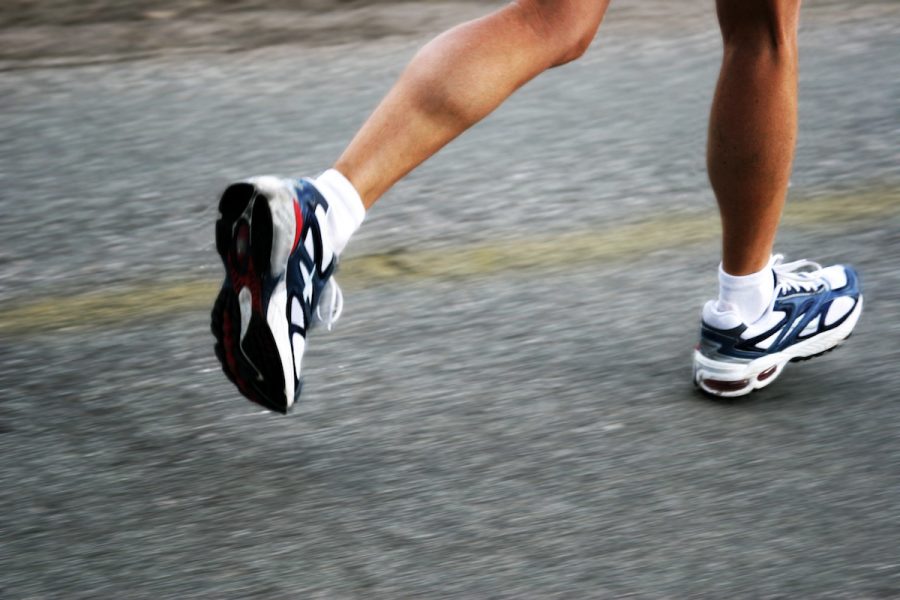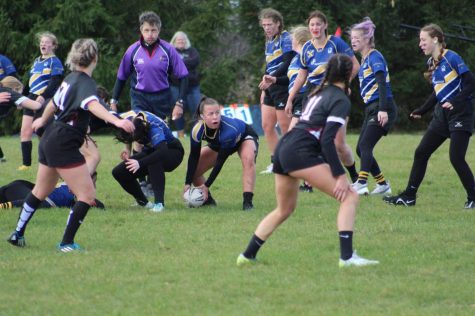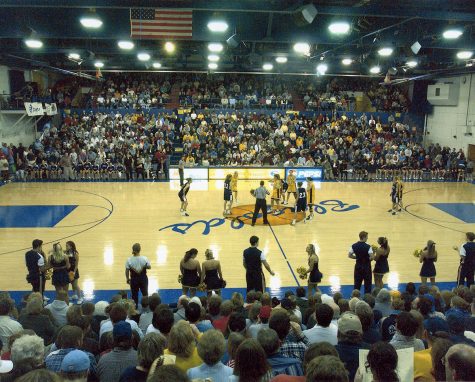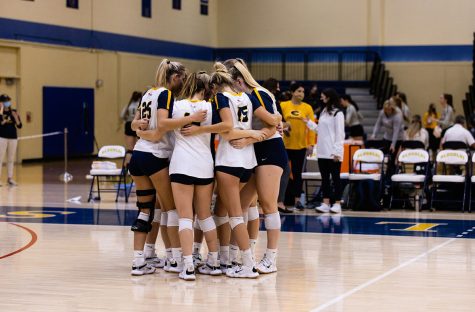Vigor in the Valley
An investigation on running: part two
Photo by Can Stock Photography
Running releases a chemical in the body called endorphins, according to WebMD. Endorphins interact with the body’s response to pain and trigger a positive feeling — runner’s high. The feeling of euphoria could be one reason runners go the extra mile.
Last week, I posed the question: “Why do we run?” A small survey of my runner friends, all twenty-somethings, seemed to provide an explanation. They answered that running is a way of coping with stress, a temporary escape from the exhaustion of the real-world.
I wondered how my little survey compared with larger sets of data. After all, I had asked a very specific demographic, leaving out countless other members of the running community. I dove into the internet’s infinite bookshelves to find a better analysis than my own.
Humans evolved through persistence hunting, the method of chasing animals down until they die of exhaustion, according to “Born to Run” by Christopher McDougall. The development of the Achilles tendons and strong arches and glutes made the early human speedy. Running wasn’t a sport, it was survival.
Then, about 10,000 years ago, humans stopped hunting and began planting. “Running Through the Ages” by Edward S. Sears reports that humans began to run for different reasons: religious ceremonies, delivering messages, military purposes and sport.
The earliest written records of running come from wood carvings in an ancient Egyptian tomb. After ruling for 30 years, Egyptian kings had to prove they were physically fit to rule by running a solo race. If he completed the race, he stayed in power but had to prove himself again every three years.
The Greeks’ Olympic Games are probably the most-cited accounts of early running. Their race results show race distances familiar to athletes today. Sears wrote the Stadion Race was about 200 meters; the Diaulos Race about 400 meters, Hippos Race about 800 meters; the Dolichos about 5 kilometers.
Though the similarities are many, the Greeks’ approach to running varies from today’s sport. Greeks ran completely naked and did not permit women to compete in or even watch the Olympic Games.
In the late 1830s, several centuries later, running as a sport finally gained traction in North America. It was second in spectator popularity only to horse racing. Some races were even held on horse tracks and audiences were charged admission.
Our love of running endured the test of time. Today, FindMyMarathon.com counted about 756 marathons scheduled in the United States in 2018. There’s love for shorter races, too. Statista.com found about 17,000 5K races were held in 2016.
In my search for why runners run, I encountered the book “Running Cultures.” It’s written by John Bale, a professor of sports studies at the Aarhus University in Denmark and a professor of sports geography of Keele University in the United Kingdom.
In his writing, Bale explores the complexity of running. It is one of the rare sports that needs a tremendous amount of context. A person running could be fleeing danger or late to work or training for a marathon.
“After walking, running is the first technology of the body that, through human agency, seeks to compress time and space,” Bale said.
Bale’s stance on running transpires into deeper discussion of humanism, tackling topics like transgression, resistance and escapism. We run to, we run away and we run for.
Running is a testament to our perseverance, a battle against our bodies and aging, said The Guardian writer Adharanand Finn.
“I once stood by the roadside at around mile 24 of the London marathon,” Finn wrote, “watching as person after person ran by, almost every one of them at a point in their lives they would rarely visit again. It was almost like seeing into their souls, their faces grimacing and contorted, but also alive with the effort.”
Personally, I don’t think hard about running. It’s only when I can’t run that I really appreciate what the sport does for me. It makes me happy, and that’s reason enough.
Neupert can be reached at [email protected].

Neupert is a fourth-year journalism student at UW-Eau Claire. She is the executive producer of Engage Eau Claire on Blugold Radio Sunday. In her spare time, Neupert's working on becoming a crossword puzzle expert.










